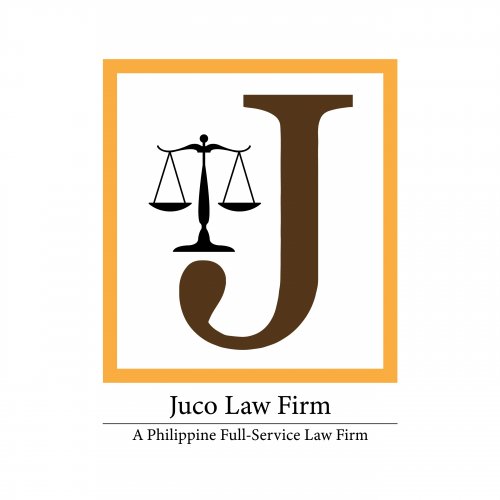Best Child Abuse Lawyers in Philippines
Share your needs with us, get contacted by law firms.
Free. Takes 2 min.
Free Guide to Hiring a Family Lawyer
Or refine your search by selecting a city:
List of the best lawyers in Philippines

Dagsaan Monterde Castillo Law and Notary Public (DMC LAW)
15 minutes Free ConsultationAbout Child Abuse Law in Philippines
Child abuse in the Philippines is a serious concern that is addressed under various laws aimed at protecting children's rights and welfare. The Philippine government has implemented several measures, including the Republic Act No. 7610 or the “Special Protection of Children Against Abuse, Exploitation and Discrimination Act”, designed to shield children from physical, sexual, and psychological abuse, as well as neglect and exploitation. The law provides stringent penalties for offenders and outlines comprehensive strategies for child protection.
Why You May Need a Lawyer
There are numerous situations where legal assistance could be crucial in cases of child abuse. If you're a parent or guardian suspecting abuse, an attorney can help navigate the legal process and ensure the child’s safety. Victims seeking justice require legal advice to pursue criminal charges or protective orders. In cases involving false accusations, a lawyer can provide the necessary defense. Legal guidance is also valuable when interfacing with child welfare services or when dealing with custody matters related to abuse allegations.
Local Laws Overview
The Philippine legal framework has a wide array of laws pertaining to child abuse. Crucial among them is the Republic Act No. 7610, which not only defines the various forms of abuse but also prescribes preventive and rehabilitative measures. The Philippine Family Code and the Revised Penal Code are also relevant, providing additional penalties and protective measures for abused children. The Juvenile Justice and Welfare Act focuses on the rehabilitation and protection of juvenile offenders, emphasizing restorative rather than punitive measures. Additionally, the Barangay Council for the Protection of Children plays an essential role at the community level, offering immediate intervention and support.
Frequently Asked Questions
What constitutes child abuse under Philippine law?
Child abuse is any act causing psychological, physical harm, suffering, or injury to a child, including neglect, maltreatment, and exploitation.
What steps should I take if I suspect child abuse?
If you suspect child abuse, report it to local authorities or the Department of Social Welfare and Development (DSWD) for immediate investigation.
Can I remain anonymous when reporting child abuse?
Yes, you can choose to remain anonymous when reporting suspected cases of child abuse to protect your identity.
What are the penalties for those convicted of child abuse?
Penalties range from imprisonment to fines, depending on the severity of the abuse, as defined by Republic Act No. 7610 and related laws.
Can allegations of child abuse impact custody arrangements?
Yes, allegations of child abuse can significantly affect custody decisions, often leading to temporary or permanent changes in custody rights.
What support is available for child abuse victims?
Support includes counseling, rehabilitation services, and legal assistance provided by various government bodies and NGOs.
How can I verify if an NGO is legitimate in providing child welfare services?
Check their registration with the Securities and Exchange Commission (SEC) and accreditation with the DSWD.
What is the role of the Barangay Council for the Protection of Children?
The Barangay Council provides immediate support and protection, coordinating efforts at the community level to prevent and respond to child abuse.
Can adults abuse children online be prosecuted under Philippine law?
Yes, online abuse is punishable under the Cybercrime Prevention Act and laws addressing children's welfare.
Is there a time limit for reporting child abuse?
There are no specific time limits; however, it is advisable to report child abuse as soon as it is discovered to ensure timely intervention.
Additional Resources
For more information and assistance, consider contacting the Department of Social Welfare and Development (DSWD), Bantay Bata 163 for child protective services, or the Child Protection Network Foundation. Additionally, the Commission on Human Rights and the Philippine National Police (PNP) Women and Children Protection Center can provide support and guidance in cases of child abuse.
Next Steps
If you require legal assistance for a case of child abuse, it is crucial to consult with a lawyer experienced in Philippine child welfare laws. Begin by researching and reaching out to credible law firms or non-governmental organizations that specialize in child protection. Gathering evidence and documentation related to the abuse, such as medical records and witness statements, is essential for legal proceedings. Staying informed about your rights and available resources significantly supports your efforts in securing justice for the affected child.
Lawzana helps you find the best lawyers and law firms in Philippines through a curated and pre-screened list of qualified legal professionals. Our platform offers rankings and detailed profiles of attorneys and law firms, allowing you to compare based on practice areas, including Child Abuse, experience, and client feedback.
Each profile includes a description of the firm's areas of practice, client reviews, team members and partners, year of establishment, spoken languages, office locations, contact information, social media presence, and any published articles or resources. Most firms on our platform speak English and are experienced in both local and international legal matters.
Get a quote from top-rated law firms in Philippines — quickly, securely, and without unnecessary hassle.
Disclaimer:
The information provided on this page is for general informational purposes only and does not constitute legal advice. While we strive to ensure the accuracy and relevance of the content, legal information may change over time, and interpretations of the law can vary. You should always consult with a qualified legal professional for advice specific to your situation.
We disclaim all liability for actions taken or not taken based on the content of this page. If you believe any information is incorrect or outdated, please contact us, and we will review and update it where appropriate.
Browse child abuse law firms by city in Philippines
Refine your search by selecting a city.
















